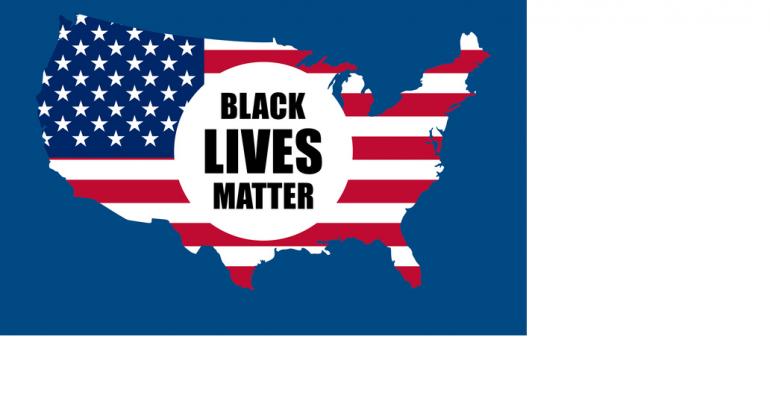Twenty-one black executives from destination marketing organizations around the U.S. penned an open letter to colleagues, reflecting on racism in America, challenging their silence on the issue, and offering seven questions to consider. Their letter is reprinted in full below.
Recently this country has been experiencing situations and events that have forced us to see everything differently. We have been beseeched by a health pandemic that has taken the lives of hundreds of thousands of our fellow human beings and all but shut down TRAVEL as we have known it. Now the death of George Floyd at the hands of the Minneapolis police officers has refocused the world’s awareness of another deadly pandemic; blatant and systemic RACISM.
The murder of George Floyd is a painful tragedy, not only for his family and friends, but also for the wider community of humanity, especially the Black sector. It is symbolic of the degree of marginalism and disenfranchisement that infects every level of society, including the meetings/travel/hospitality industry.
Like every Black person in this country, we well know that at any point in time in any city in America our rights as citizens and yes, our lives, could be taken in a moment at the hands of someone who sees themselves as superior and “in control.” Nationally, Blacks are denied equal access to job opportunities. In the hospitality industry, specifically destination marketing, our efforts to improve the representation of Blacks continues to be a challenge at all levels, but specifically at the executive and C-suite positions. We have watched the protests in our cities, and in the cities globally of our peers. We support the protests with the hope of change to a narrative we have lived with our entire lives.
We are further saddened by the deafening SILENCE from many of our peers and colleagues in this industry. To paraphrase civil rights activist Eldridge Cleaver, “If you are not a part of the solution, you are a part of the problem.” Clearly, whether we realize it, admit it, or like it, all of our lives have been impacted and our world has changed. This industry must and will also change. HOW will be determined by the actions we take NOW. One thing is for sure, going forward, we can no longer “do business as usual.”
Although it is not imperative for creating change, history has taught us that it is helpful for those concerned to fully recognize the NEED for changes to be made. So if we can at least begin by accepting that racism has no place in this country or our industry, perhaps a starting point for making things better would be to establish meaningful platforms to have open conversations to LISTEN to those in the industry, as well as the broader traveling public whose experiences are shaped by the policies and decisions made by those of us in positions of leadership.
To further gain some enlightenment, we might do well to ask some pertinent questions, such as:
• In general, what are you doing in your own organizations/cities to nurture cultural change as it relates to racism?
• What steps are you taking to ensure local industry boards, committees, and staff have African American representation and leadership in your office and hospitality community?
• How are you engaging underserved communities to attract the talent of the future?
• Are you broadening the conversation to include young people, activists, community leaders, faith-based groups, Historically Black Colleges and Universities (and other) students?
• Have you developed a policy for procurement that ensures a percentage of purchases and professional services are from Black and/or minority-owned businesses?
• How do you engage your stakeholders to participate in co-ops and strategies with Black travel businesses to attract Black visitors to your community? (According to Mandala Research, the economic value of Black travelers has increased in 2018 to $63 billion from $48 billion in 2010.)
• Do your print, digital, website, POS materials represent the faces of your community and the traveling public?
If our industry is going to emerge as a winner in the travel and tourism game, we encourage you to embrace the philosophy of the late professional tennis player, Althea Gibson, who in 1956 was the first Black to win a Grand Slam title. Her motto was: “A loser says, 'It is possible, but it is difficult.' A winner says, 'It is difficult, but it is possible.'”
We stand ready to do our part to make the possibility of a new, better, highly evolved, inclusive travel industry a reality in 2020 and the years to come. Will you join us?
Sincerely,
Arthur Ayres, Jr.
VP of Finance, Discover Philadelphia
Cleo Battle
COO, Louisville Tourism
Timothy Bush
President and CEO, Louisiana’s Cajun Bayou
Julie Coker
President and CEO, San Diego Tourism Authority
Gregory DeShields
PHL Diversity, Executive Director, Discover Philadelphia
Jason Dunn
Group VP, Diversity Sales & Inclusion, Cincinnati USA CVB
Lorne Edwards
SVP of Sales and Services, Visit Phoenix
Elliott Ferguson
President and CEO, Destination DC
Darren Green
SVP, Sales, LA Tourism & Convention Board
Michael Gunn
SVP, Convention Sales and Servicing, Greater Birmingham CVB
Al Hutchinson
President and CEO, Visit Baltimore
Charles Jeffers II
COO, Visit Baltimore
James Jessie
SVP of Convention Sales & Services, Travel Portland
Connie Kinnard
VP, Multicultural Tourism & Development Greater Miami CVB
Robin McClain
SVP, Marketing and Communications, Destination DC
Angela Nelson
VP of Multicultural Business Development, Experience Grand Rapids
Marie Sueing
VP, Multi-Cultural Community Relations, Nashville Convention & Visitors Corp
Melvin Tennant
President & CEO, Meet Minneapolis
Rickey Thigpen
President & CEO, Visit Jackson
Dan Williams
VP, Convention Sales & Services, Experience Columbus
Ernest Wooden, Jr.
President and CEO, LA Tourism & Convention Board





